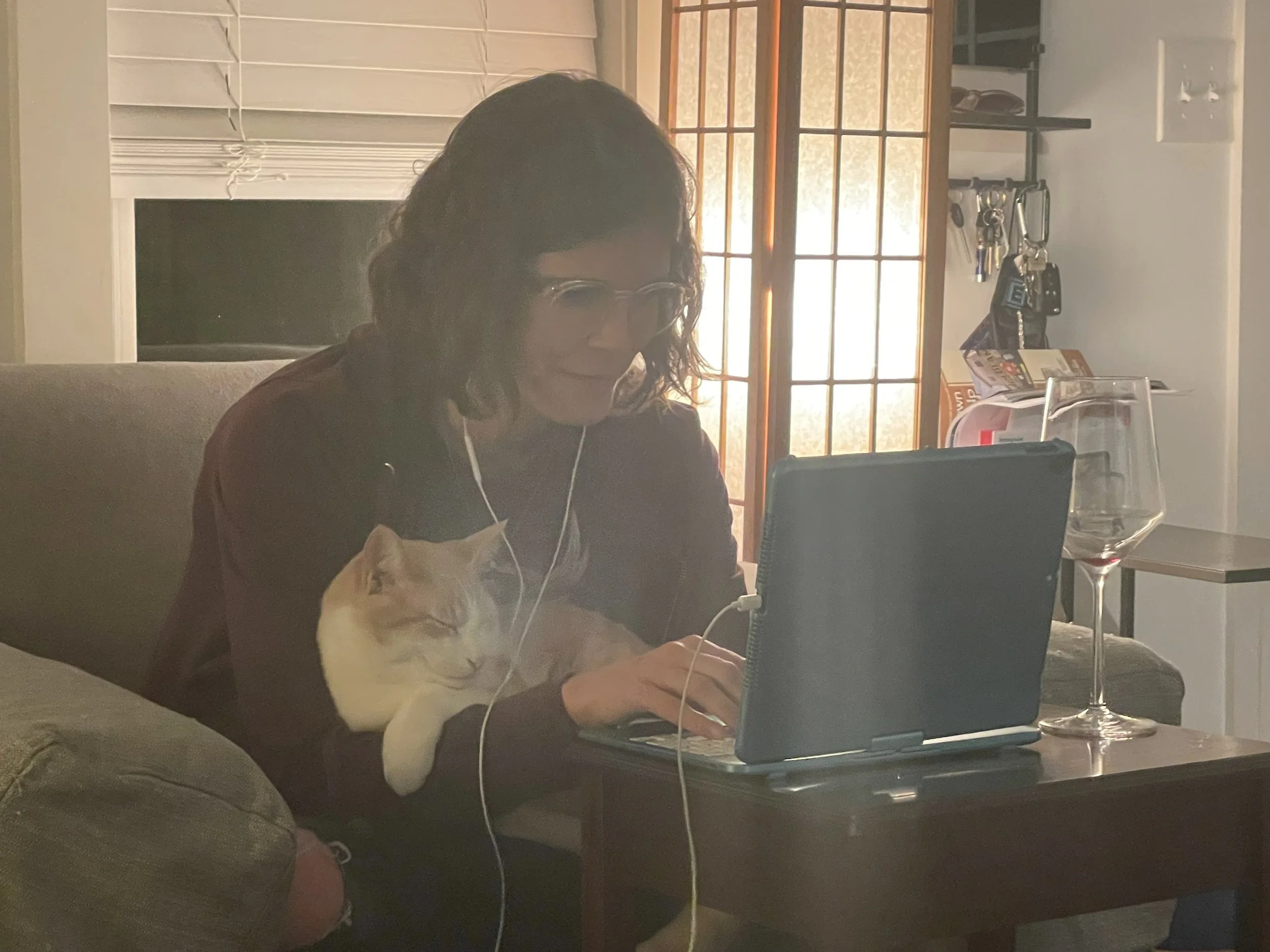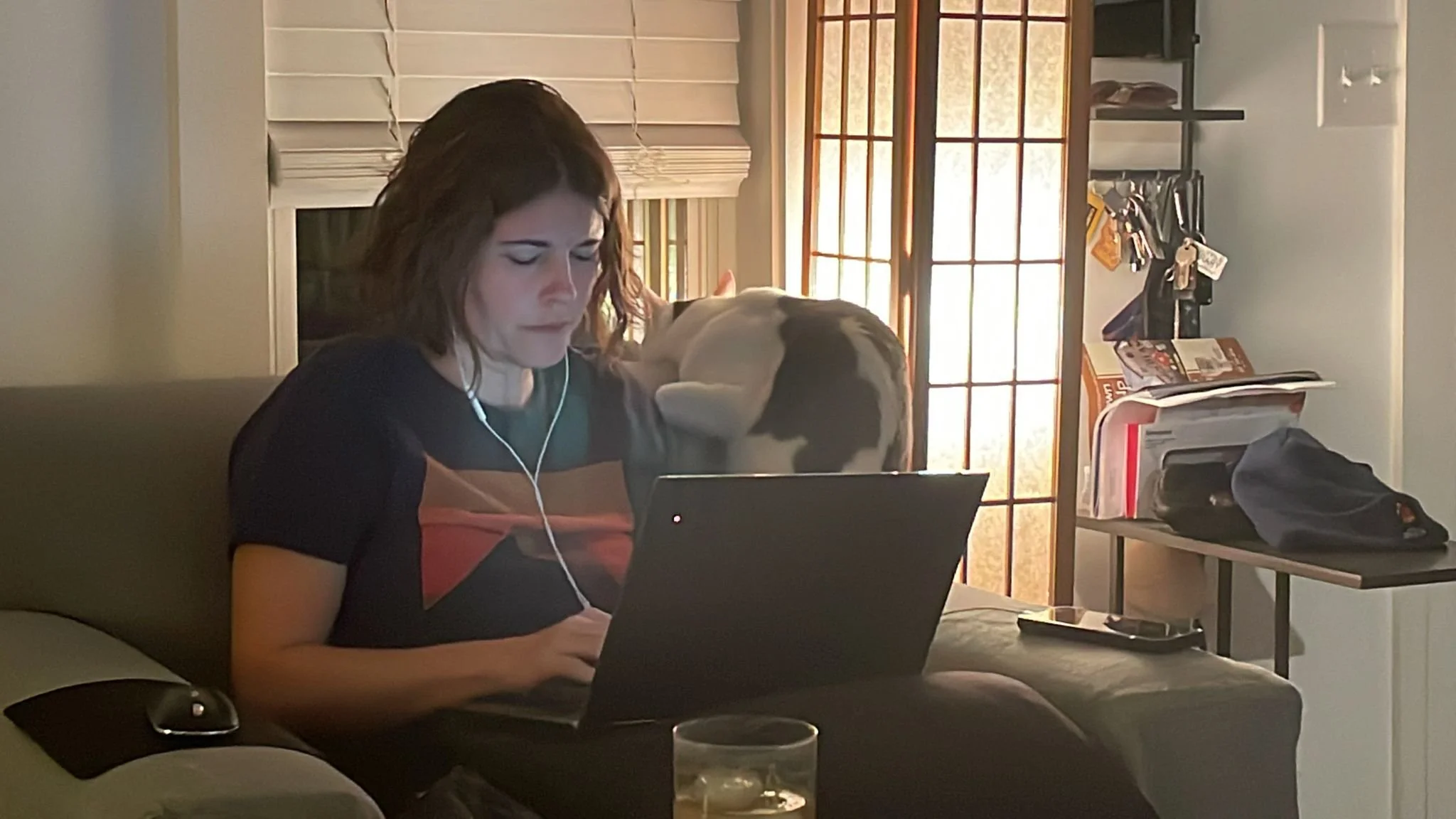Giving and Receiving Feedback
Aang giving me feedback on my work in progress.
It’s difficult to improve in a vacuum.
In order to take any skill to the next level, some personalized and specific feedback is necessary. This usually means you must put yourself in the uncomfortable position of having your work inspected and criticized. It’s a vulnerable place, but it’s unavoidable if you want to grow.
I don’t think there’s one skill I’ve pursued (and my moon is in Gemini, I’ve pursued a lot of skills) where I didn’t have to receive and act on feedback. Everyone will react differently to receiving feedback, and differently depending on who is giving it to you. For example, some people don’t take well to receiving critical feedback from their significant other. They need that person to be their safe place and always on their side. Other people are fine with it, they consider this person the one they trust most and so want to hear the good and the bad from them. I think figuring out how you receive feedback well from is an important thing to learn about yourself.
Here’s a few pointers about receiving feedback in no particular order:
When asking for feedback, go in with the expectation that whoever you’re asking is going to have something that you can improve upon. I can count on one hand the times I’ve asked for feedback on something and been told it’s perfect and that I shouldn’t change anything. This should go without saying, but I’ve run across many people who obviously asked for feedback expecting to be told how wonderful their work is and became defensive and hurt upon getting improvement suggestions.
Listen to what your critic has to say. You’ll learn to sort through feedback and determine what is helpful and what isn’t. Sadly there are some people who will tear others down for their own reasons—you’ll learn not to ask them for feedback—but most of the time, people are being honest and want to help you improve. Even if you disagree with their suggestions, listen to them.
If you find yourself really balking at feedback, sit on it for a day, then ask yourself why. This is something that I have to do frequently when getting feedback about my writing. I’ll hear a suggestion on how I can improve a certain character or scene and think, “well, that’s just nuts, I don’t want to do that.” I don’t say anything like that. But nine times out of ten, if I sit with it for a day or two, then go back and look at the work, I find that the critic was correct. OR that they weren’t seeing what I was trying to do because I hadn’t made something else clear enough. And yes, every now and then there will be times that you just don’t agree with their artistic interpretation of your work, and that’s fine, it’s ultimately yours, but if you’re getting feedback from a trusted source, remember that these occasions are usually the exception.
Try not to get defensive or argumentative. Receiving feedback is an emotional thing and if you’re not used to it, or didn’t prepare yourself to hear some comments that you may not like, then you’ll likely feel like you’re being attacked. Remember that in most cases, the person giving the feedback is honestly trying to help you. Bite your tongue, let them finish, you can pick apart everything they’ve said later and see if it works for you.
Say thank you. If you’ve asked someone to review your work, they’ve taken time out of their live to look at it, read it, watch it, whatever, and then time to put together a response. Sometimes the person giving the feedback is just as nervous as the person receiving it. So say thanks, they did this for you.
Now a few things I’ve learned about giving feedback:
If it’s not helpful, don’t say it. “I just don’t like it.” Is not helpful. If that’s how your feeling, dig a little deeper and try to come up with reasons why you don’t like it. Even more helpful if you can suggest ways to improve it. Just dissing someone’s work isn’t helping them to grow.
Start with the positives, end with the positives. You should be able to find at least two things that you liked about what you’ve been asked to give feedback on. Even if they’re things this person already knows. “They already know they’re funny, I don’t need to say that.” Please say it. You’ve been given a little piece of someone’s soul and time. Say all the good things, even if you think they already know them. It also makes the constructive feedback easier to hear if you sandwich it with the positives. You’ve shown you’re not just there to tear it down.
If you’re confused about something, ask. “What were you trying to do with X?” Is a lot easier to swallow then, “I didn’t understand X at all.” Once you get them to articulate what they were trying to do, both of you may have ideas on how to make it less confusing. In general, people enjoy talking about their work, so exploring it with them will be more fun for both of you.
Don’t just say you liked it. You’re being asked for your opinion and you’ve agreed to give it. If you’re going to take the time to really check out the work, give something. If you did happen to like everything about it and don’t want it to change at all, then give at least three specific examples of what you liked.
You don’t have to agree to give feedback. If someone asked me for feedback on a terrifying horror film, I would tell them that, not only was I not the audience they were trying to please, but for my own emotional health, I couldn’t go there. And there are some people who do work that just doesn’t jive with you and that’s okay. “I love that you’re passionate about this, and I support that you’re doing it, but I don’t think I’m your audience,” should work.
Cloud has decided that he’s not my audience. He declines to give me feedback. I respect his position.
Feel free to add on to either of these lists! Being on both sides of feedback, I can say that learning to give and receive it well is a skill that is worth developing. Not only will it help your work, it will grow your community and you’ll be able to give back to those around you.


